Key points
- CDC's partners have developed several free resources for public health departments.
- These resources inform public health's work in addressing key issues for dementia.
- Resources highlight the importance of maintaining health in key areas and supporting caregivers.

General information for older adults
Integrating Alzheimer's disease messages into chronic disease programs
CDC and the National Association of Chronic Disease Directors (NACDD) partnered to produce this communication guide for public health professionals. It explains how to leverage existing communication channels to promote brain health messages within chronic disease risk reduction programs. It offers:
- A guide on how to work with chronic disease prevention and control programs and their partners to develop and disseminate effective communication strategies
- Customizable brain health rack cards and infographics for use in health care providers' offices.
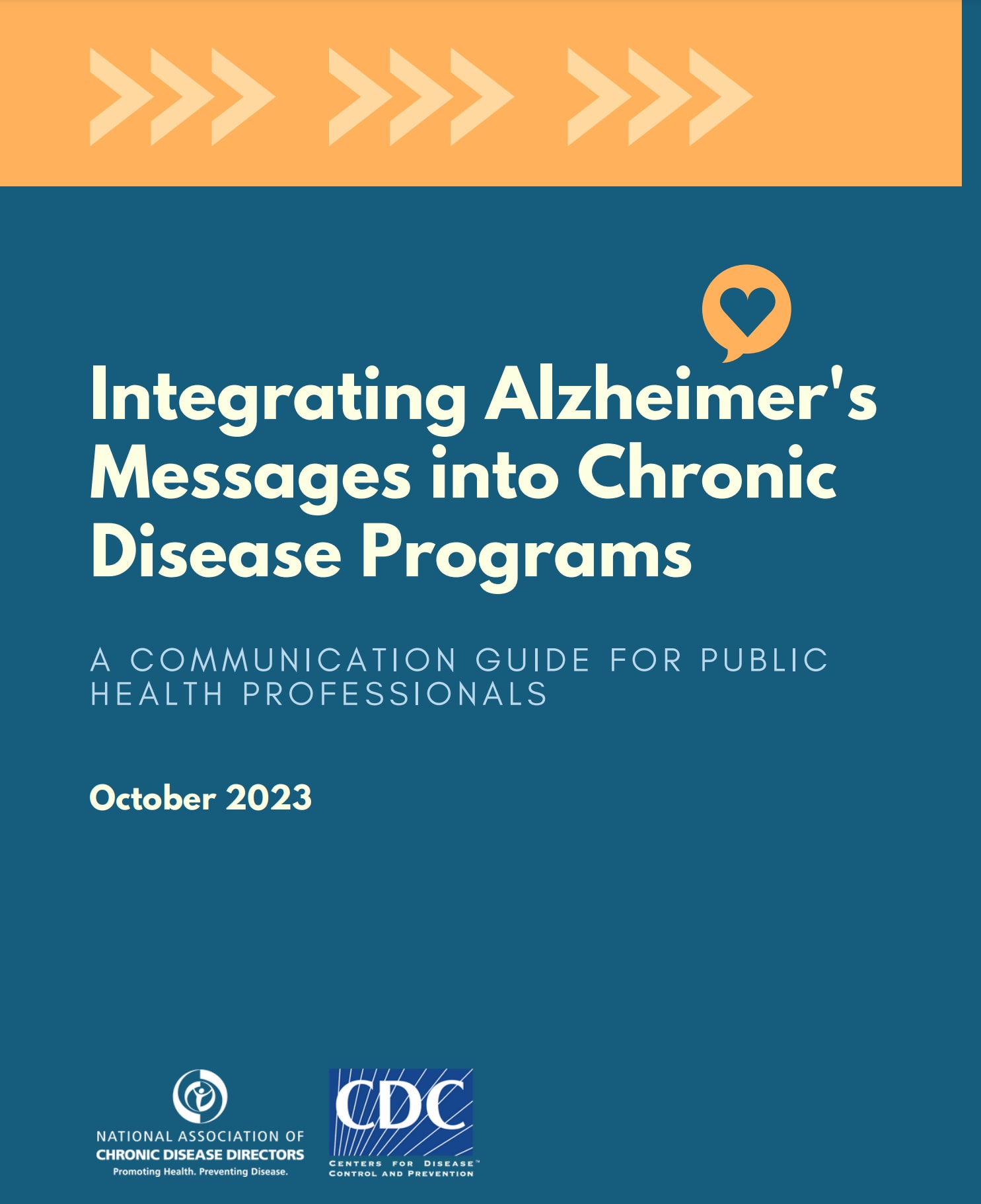
These downloadable rack cards and infographics show risk reduction messages to promote brain health.
- Rack cards are available in 4 languages (English, Chinese, Spanish and Vietnamese).
- For more information and approval to customize, please see NACDD Action on Healthy Aging and Brain Health.
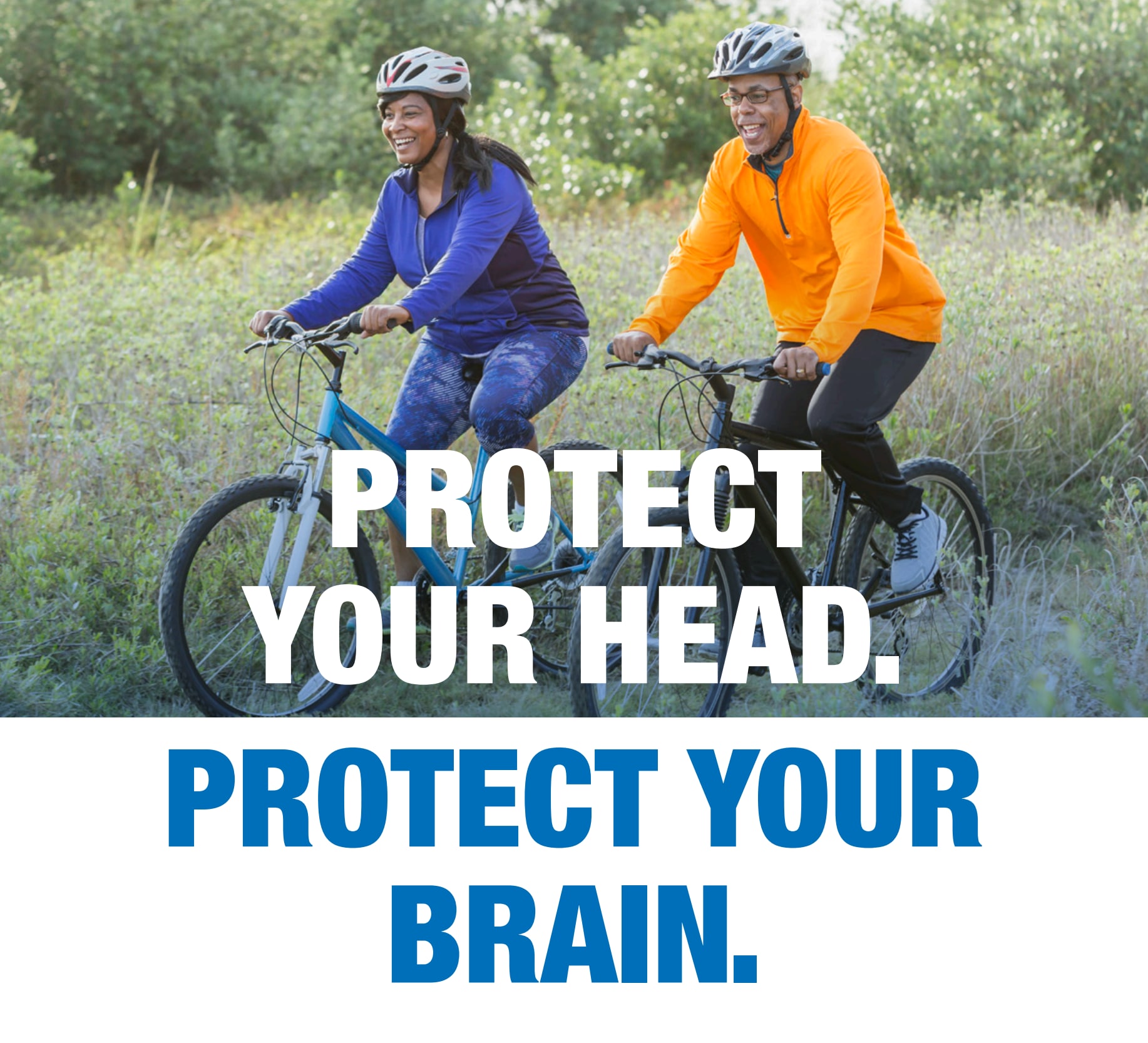
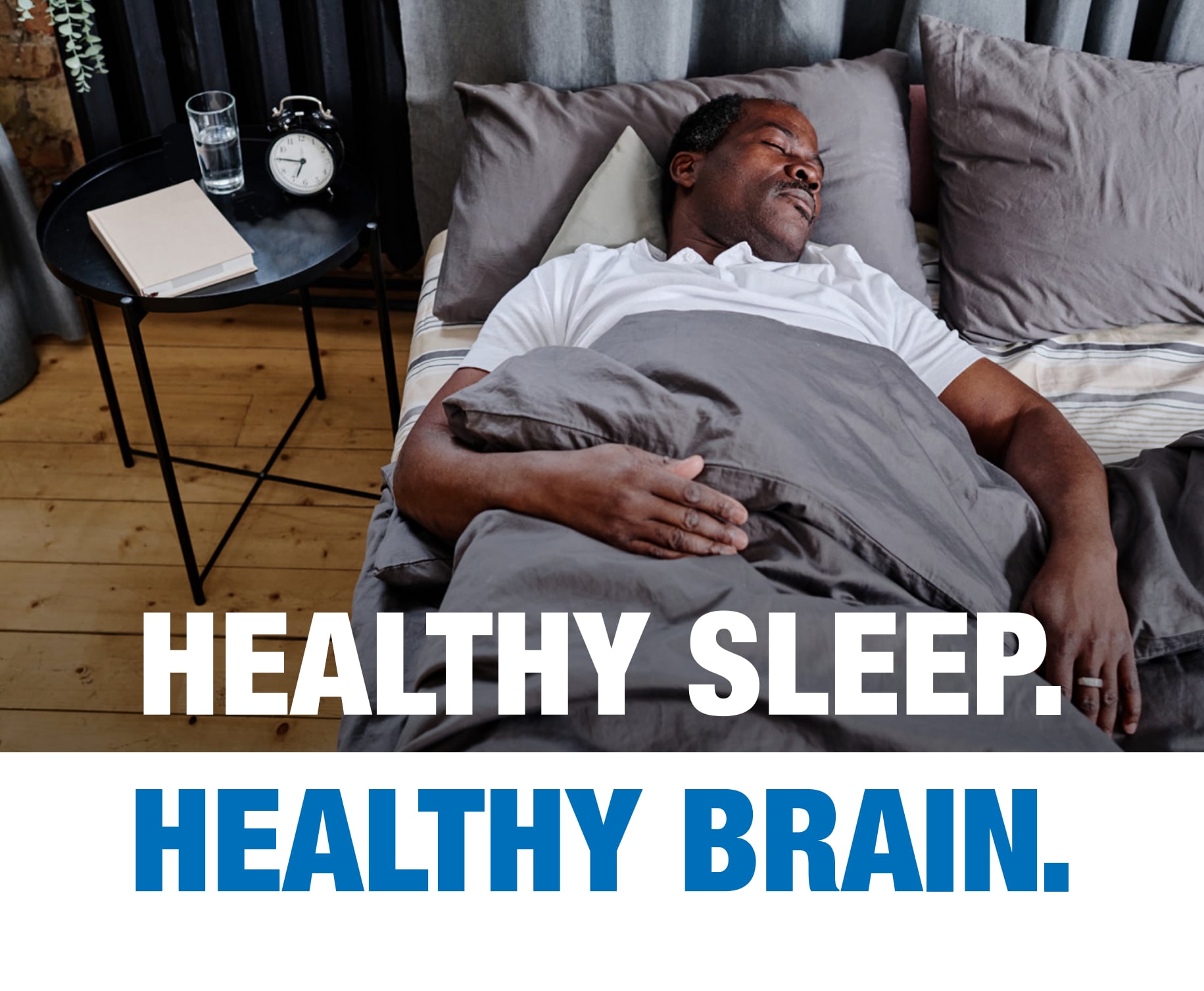
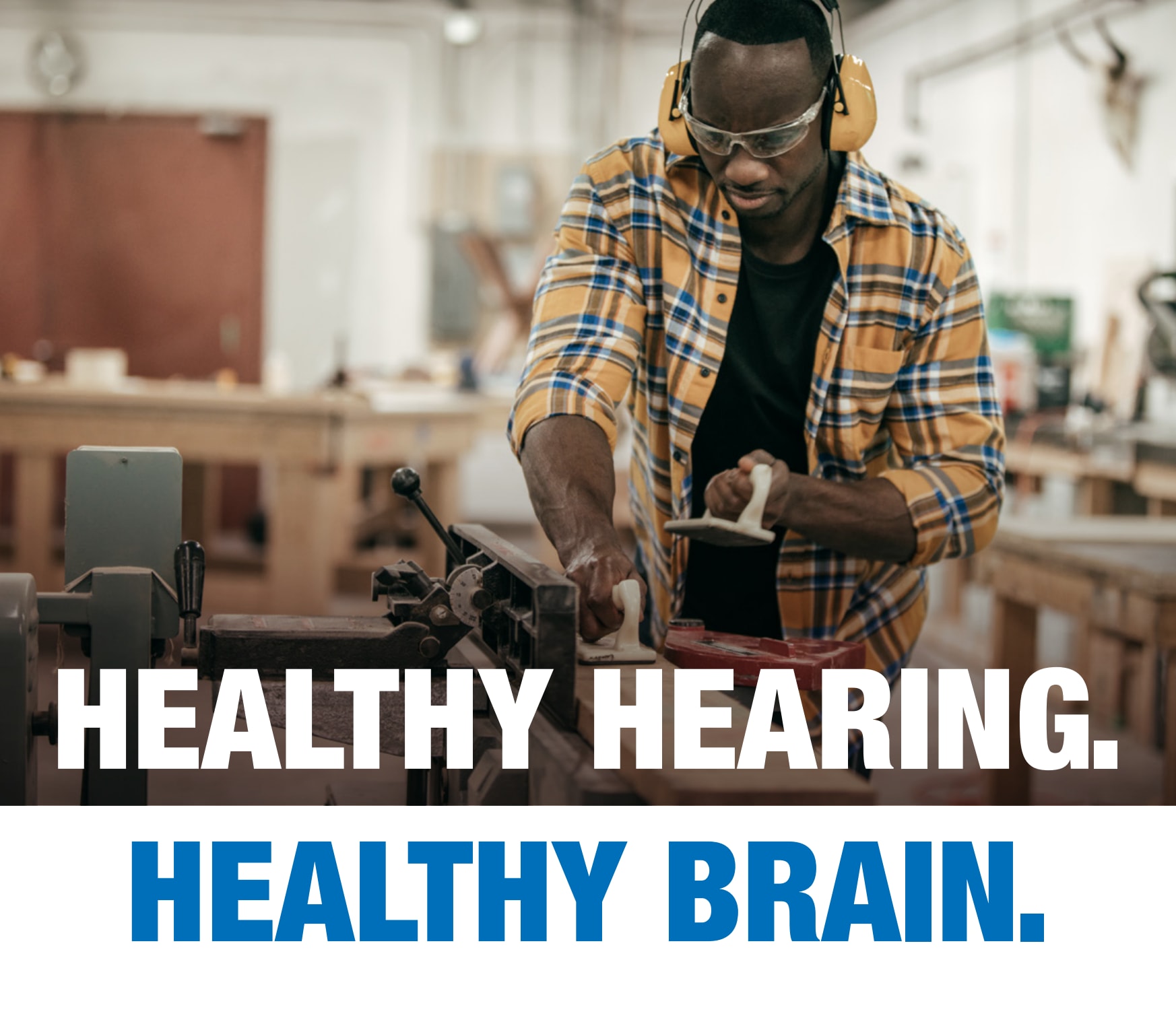
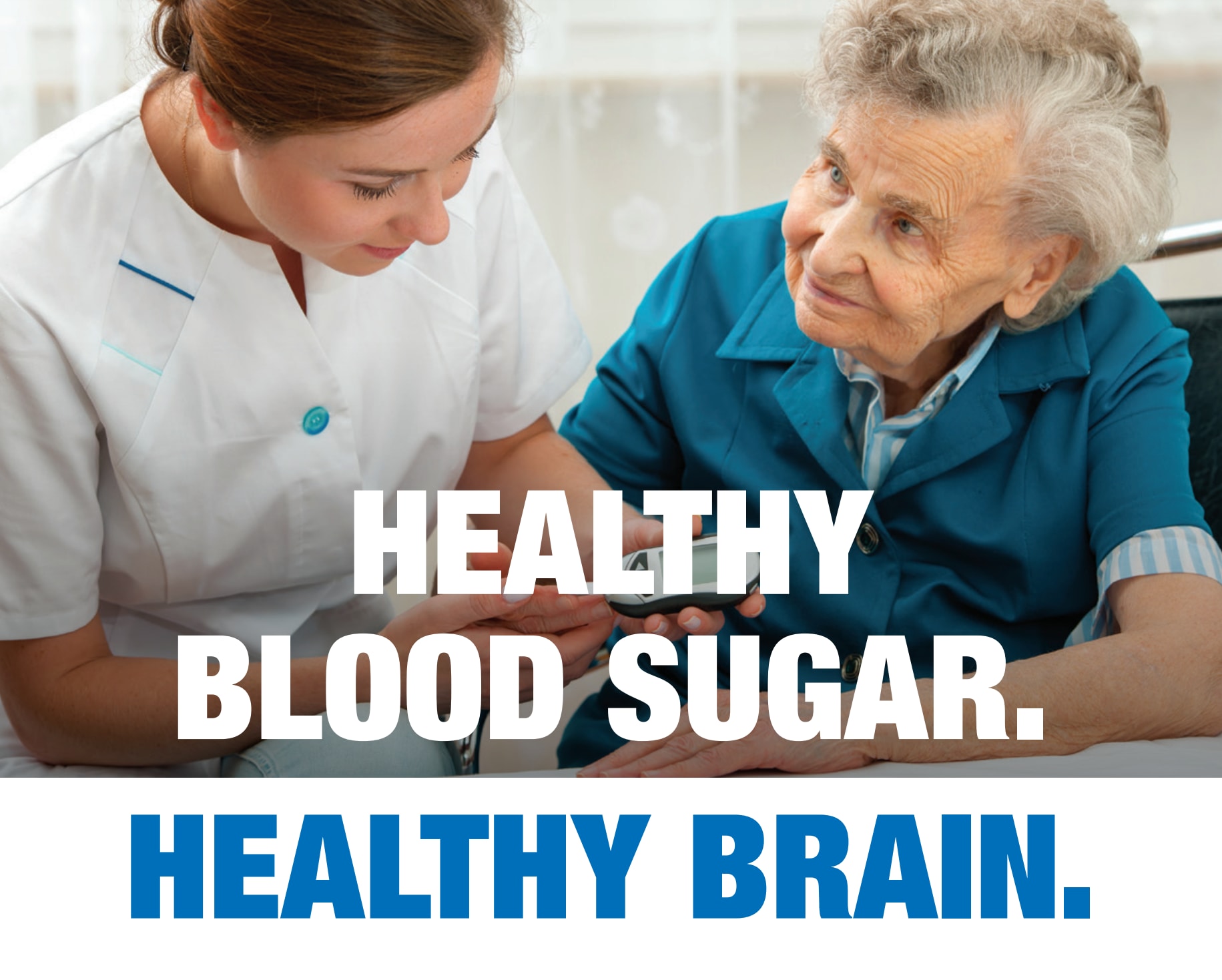
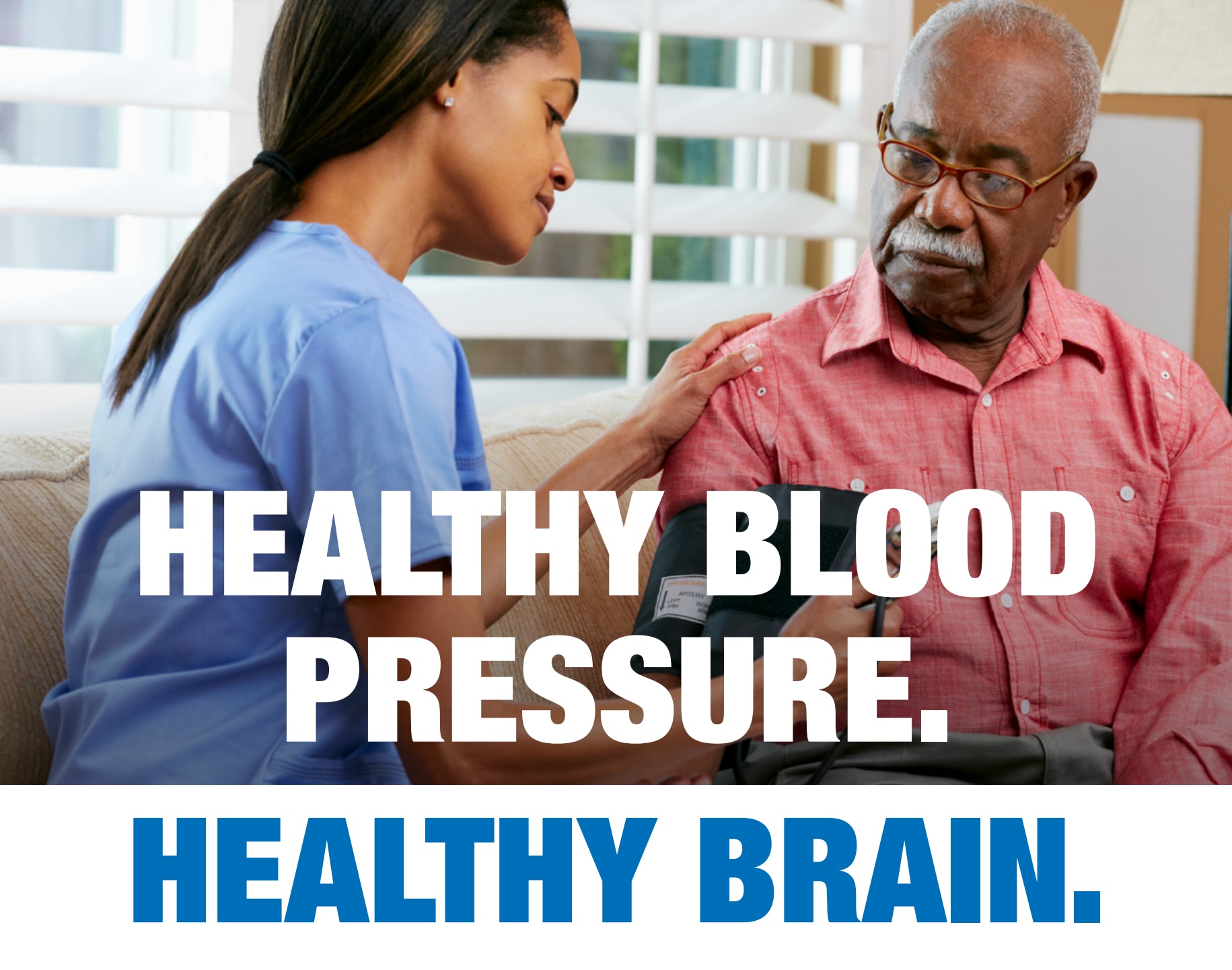
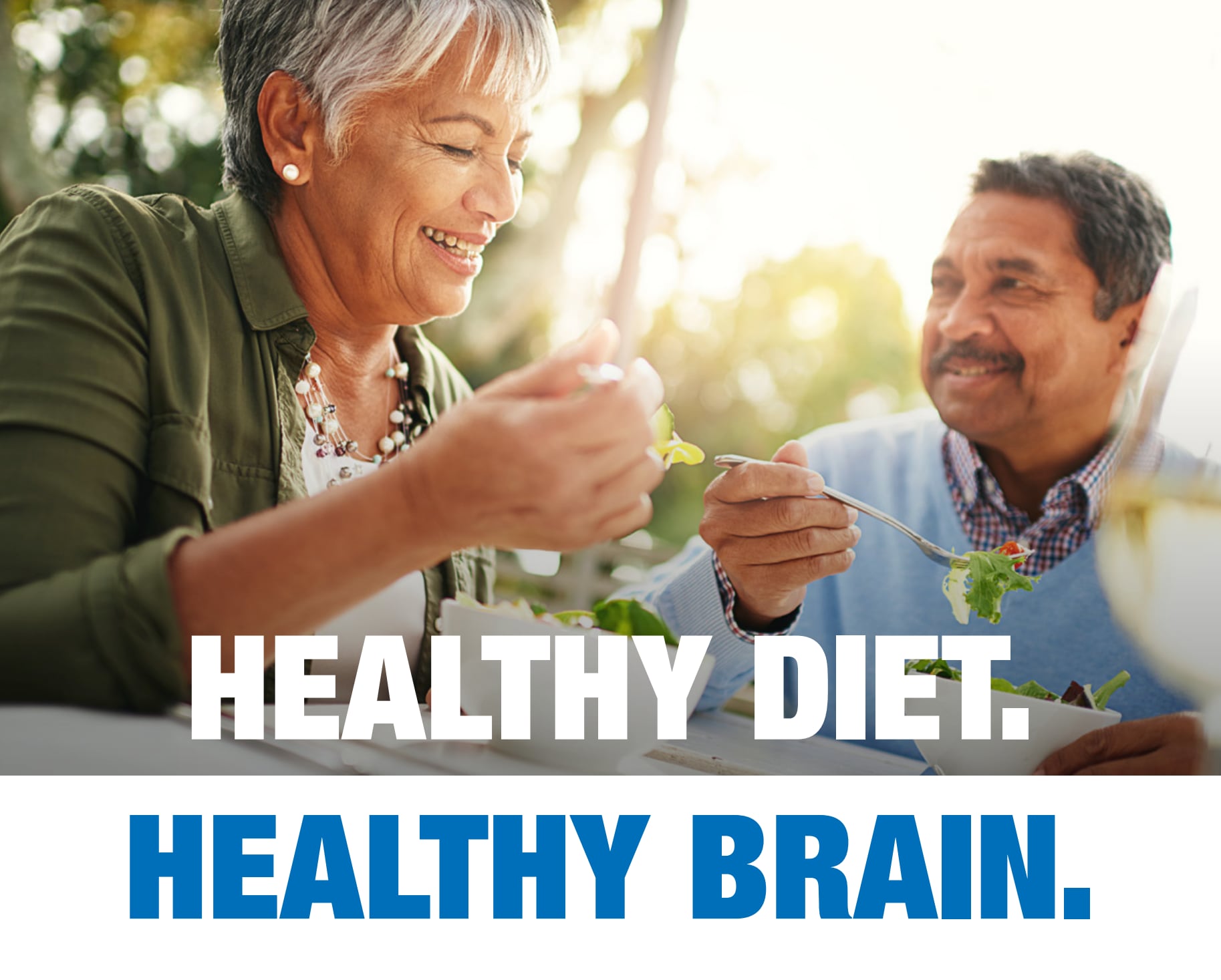
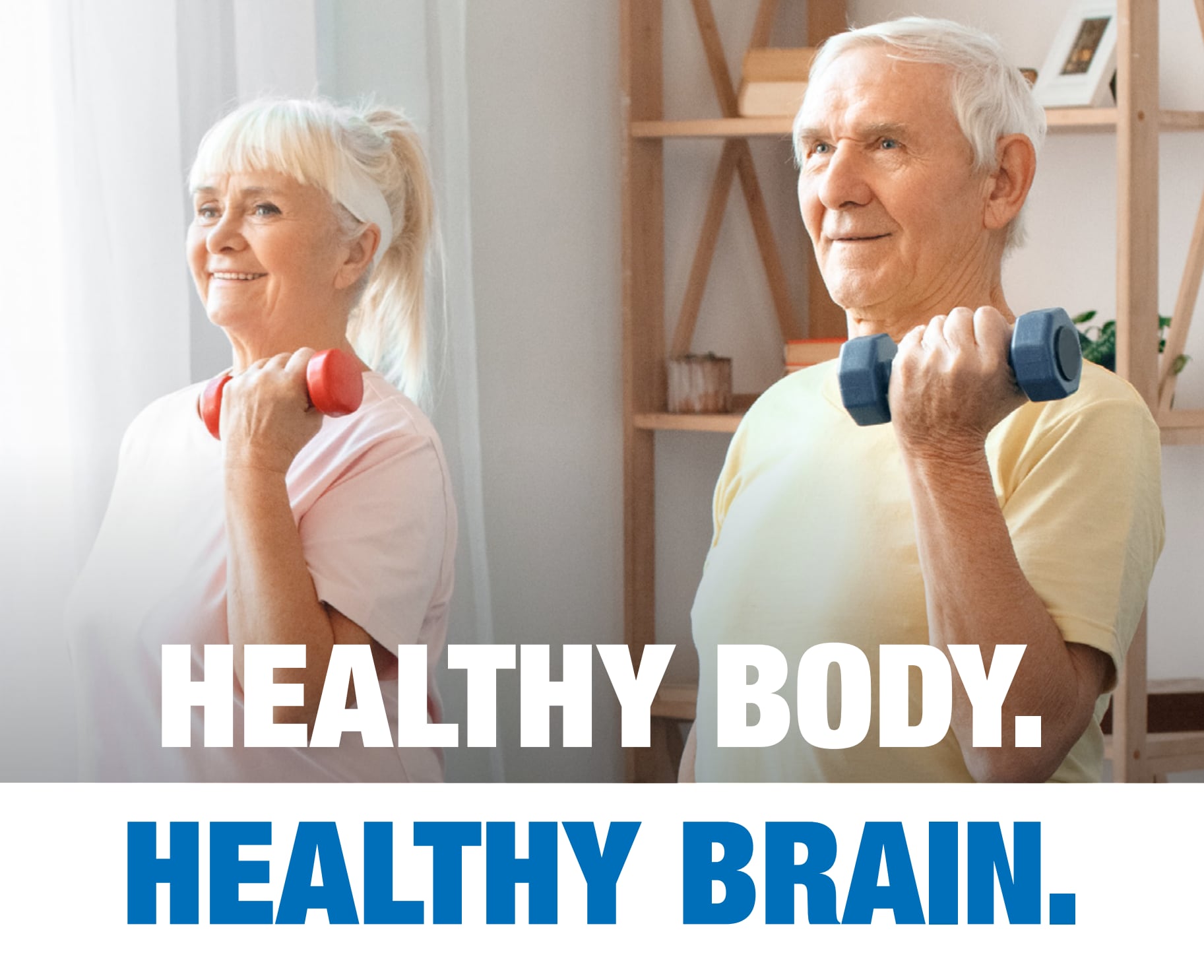
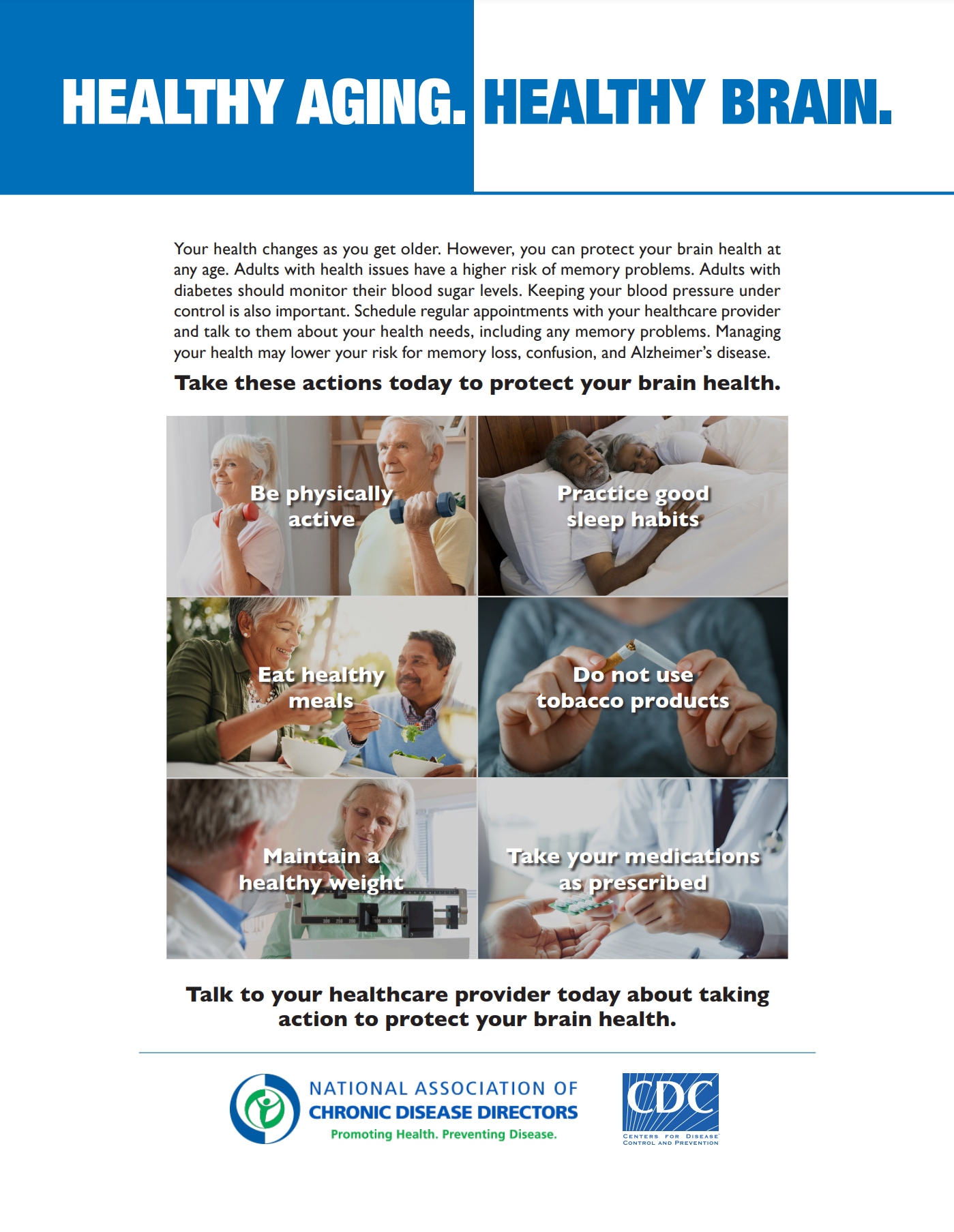
Customizable templates — Healthy Heart, Healthy Brain
CDC partnered with the Alzheimer’s Association to these information materials for health care providers and public health professionals. These materials can be used to educate their patients and communities about promoting brain health.
They include a series of four customizable flyers and two instruction guides for professionals to tailor images and information to their community.
Toolkits
The American College of Preventive Medicine, in partnership with CDC, has developed a toolkit for health care providers. The toolkit provides actionable guidance, illustrative case studies, and educational materials to support the integration of brain health initiatives within health systems and leverage clinical-community linkages. Public health partners and interested individuals are also encouraged to use this toolkit.
The BOLD Center for Early Detection of Dementia, in collaboration with the CDC, developed this toolkit. It is intended for clinicians, administrators, and patients engaged with large health systems. The toolkit provides information on early detection of dementia, establishing supportive services, and becoming more ‘dementia-capable’. It supports a comprehensive approach to dementia detection to cultivate a supportive and sustainable care pathway for individuals and their families.
